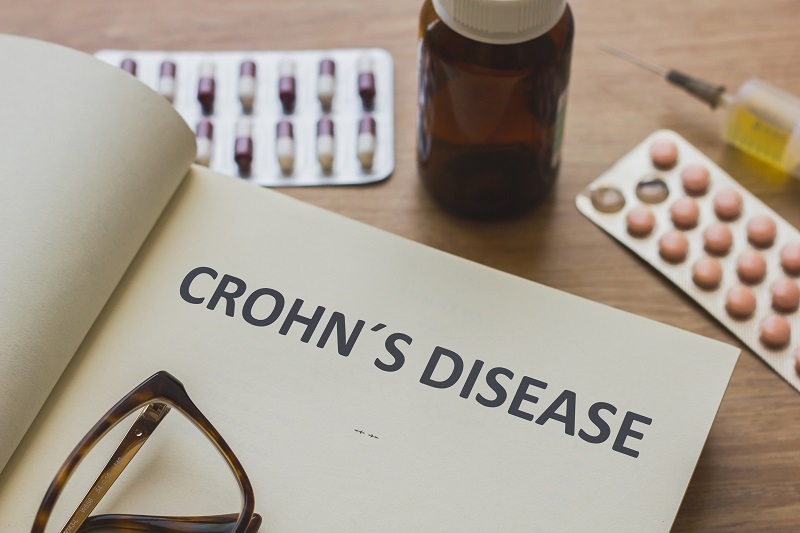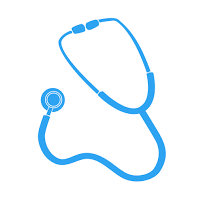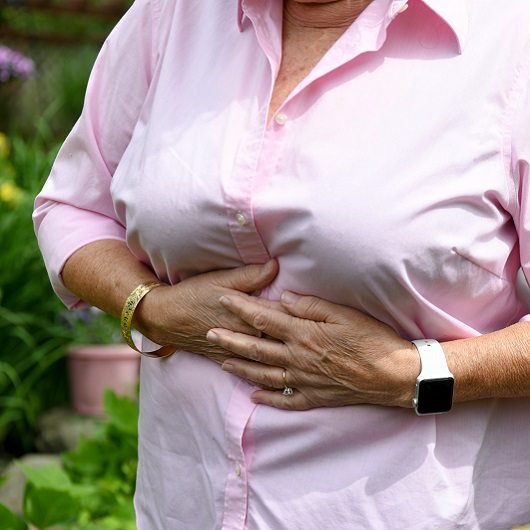Managing Crohn’s Disease: Flare-Ups and Treatment Options

January 12, 2024
People with Crohn’s disease periodically have flare-ups, with pain and frequent bowel movements. Fortunately, treatments are available that make flares easier to manage.
Crohn’s disease is a chronic inflammatory bowel disease that fluctuates between flares and remission. During remission, people don’t experience symptoms, or their symptoms decrease.
Occasional flare-ups are simply part of life with Crohn’s disease. Even people who faithfully take their medication and eat the recommended diet experience them.
You may be more likely to have a flare-up of Crohn’s disease if you:
- Forget to take your medication
- Take the wrong dosage of medication
- Take non-steroidal anti-inflammatory drugs (NSAIDs), like ibuprofen or naproxen
- Take antibiotics
- Eat fried, greasy foods
- Smoke
- Experience high levels of stress
- Have an infection
“Whenever you have a flare-up, it’s important to see your doctor,” says gastroenterologist David Rosenheck, M.D. “They’ll investigate its cause and provide appropriate treatments to help you go into remission.”
What a Crohn’s Disease Flare Looks Like
Many people with Crohn’s disease spend months or years in remission, then have flares. The symptoms during a flare may last days, weeks or months.
Crohn’s disease is an autoimmune disorder, meaning the body mistakenly attacks healthy tissue.
When the immune system goes on the attack, it causes inflammation in the body. Inflammation affects the gastrointestinal tract, causing symptoms.
Someone having a Crohn’s disease flare-up may experience:
- Frequent bowel movements
- Urgent bowel movements
- Diarrhea
- Blood in the stool
- Abdominal pain
- Abdominal cramping
- Nausea
- Vomiting
- Anemia
- Fatigue
- Loss of appetite
- Weight loss
- Achy joints
- Body aches
- Rashes
- Eye pain or redness
- Vision loss
Treatments for Crohn’s Disease Flare-ups
Different treatments are available to help manage Crohn’s disease flare-ups. The type of treatment that you receive depends upon your symptoms and personal circumstances.
Doctors may recommend:
- Medication. During a flare-up, doctors may prescribe corticosteroids to reduce inflammation. Different medications reduce the activity of an overactive immune system, while others relieve symptoms.
- Bowel rest. Rarely, when a flare damages the intestines, they may need time to heal. Patients stop eating, except prescribed liquids, and receive nutrition intravenously or by feeding tube.
- Surgery. Sometimes, flare-ups lead to complications like intestinal bleeding, blockage or perforation. Surgery can correct problems like these.
Doctors may also recommend lifestyle changes during a flare-up. They may suggest:
- Quitting smoking. Giving up cigarettes is a healthy choice for anyone, including people with Crohn’s disease. Smoking makes Crohn’s symptoms worse.
- Getting exercise daily. Exercise is good for everyone, including people with Crohn’s disease. It may help boost the immune system and reduce stress, which may exacerbate flares.
- Taking a multivitamin. Some people with Crohn’s disease don’t absorb enough nutrients from food. Vitamin supplements may improve their nutrition.
- Lowering your stress levels. Finding ways to reduce stress in your life may be helpful. Options include yoga, meditation, breathing exercises or setting personal boundaries.
- Eating a healthy diet. There isn’t a single diet that’s right for everyone with Crohn’s disease. Doctors may recommend against certain foods or send you to a registered dietitian.
People with Crohn’s disease have different food triggers. However, during a flare-up, it’s best for nearly everyone with Crohn’s to avoid:
- High-fiber fruits, vegetables and nuts, especially those with skins and seeds
- Whole-grain bread and pasta
- Raw fruits and vegetables, in favor of cooked produce
- Certain dairy products, if lactose intolerance is a factor
- High-fat foods, including butter and fatty cuts of red meat
- Spicy foods
- Salty foods
- Caffeinated beverages
“Check with your doctor or a registered dietitian before changing your diet,” says Dr. Rosenheck. “However, many doctors recommend these eating habits when Crohn’s flares occur.”
Next Steps & Resources:
- Meet our source: David Rosenheck, M.D.
- To make an appointment with Dr. Rosenheck or a doctor near you, call 800-822-8905 or visit our website.
The material provided through Healthier You is intended to be used as general information only and should not replace the advice of your physician. Always consult your physician for individual care.







